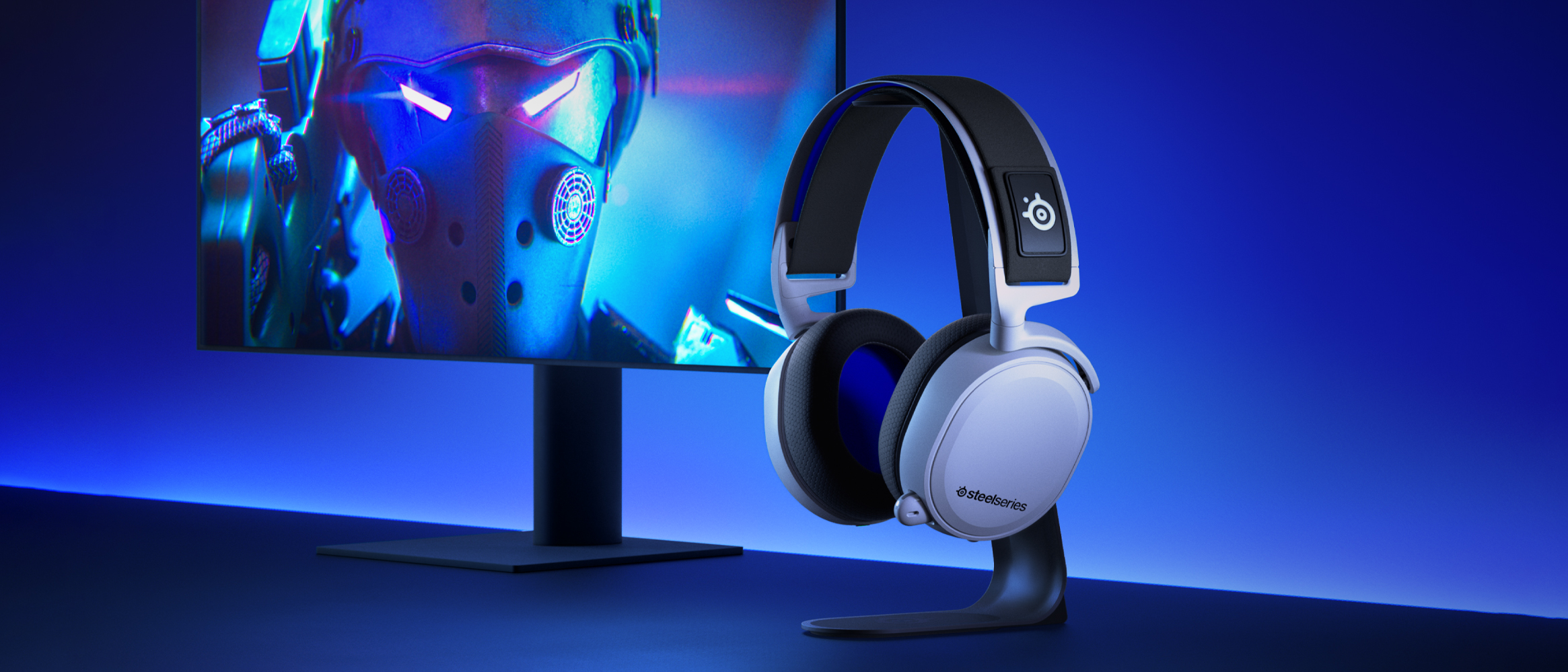Tom's Guide Verdict
The SteelSeries Arctis 7+/7P+ improves on a good design, but also costs a little more money than the previous model.
Pros
- +
Retains most good things from Arctis 7/7P
- +
Better battery life
- +
USB-C connectivity
- +
More robust software
Cons
- -
Retains most bad things from Arctis 7/7P
- -
More expensive than predecessors
Why you can trust Tom's Guide
Compatibility: PC, PS4, PS5, Switch, Android
Drivers: 40 mm
Frequency Response: 20 Hz – 20 kHz
Wireless: Yes
Longtime readers won’t be shocked to learn that the SteelSeries Arctis 7+ and SteelSeries Arctis 7P+ are excellent gaming headsets. That’s primarily because the SteelSeries Arctis 7 and SteelSeries Arctis 7P were excellent gaming headsets. SteelSeries has adopted an “if it ain’t broke, don’t fix it” policy, opting for a mild upgrade that improves battery life and adds USB-C connectivity. The devices now cost $170 instead of $150. On the one hand, that’s all you need to know about them.
On the other hand, it’s worth analyzing how the Arctis 7+/7P+ is both a welcome update, and an extremely conservative one. The headset sounds great, but music is still a sticking point, five years later. The software has lots of new options, but still not many presets for gaming. The headset is still compatible with many different systems, but the dongle is still not a great fit for console play.
If you were eyeing a SteelSeries Arctis 7 headset, and have no interest in playing on Xbox, the Arctis 7+/7P is the way to go. If you wanted to hold out for a more significant upgrade, that also seems like a reasonable strategy at this point. Read on for our full SteelSeries Arctis 7+/7P+ review.
SteelSeries Arctis 7+ vs. SteelSeries Arctis 7P+
Before we get into the review proper, it’s probably worth outlining the differences between the SteelSeries Arctis 7+ and the SteelSeries Arctis 7P+. Simply put: There aren’t many. While the 7+ is optimized for PCs and the 7P+ is optimized for PlayStation consoles, there are only two minor differences between the devices.
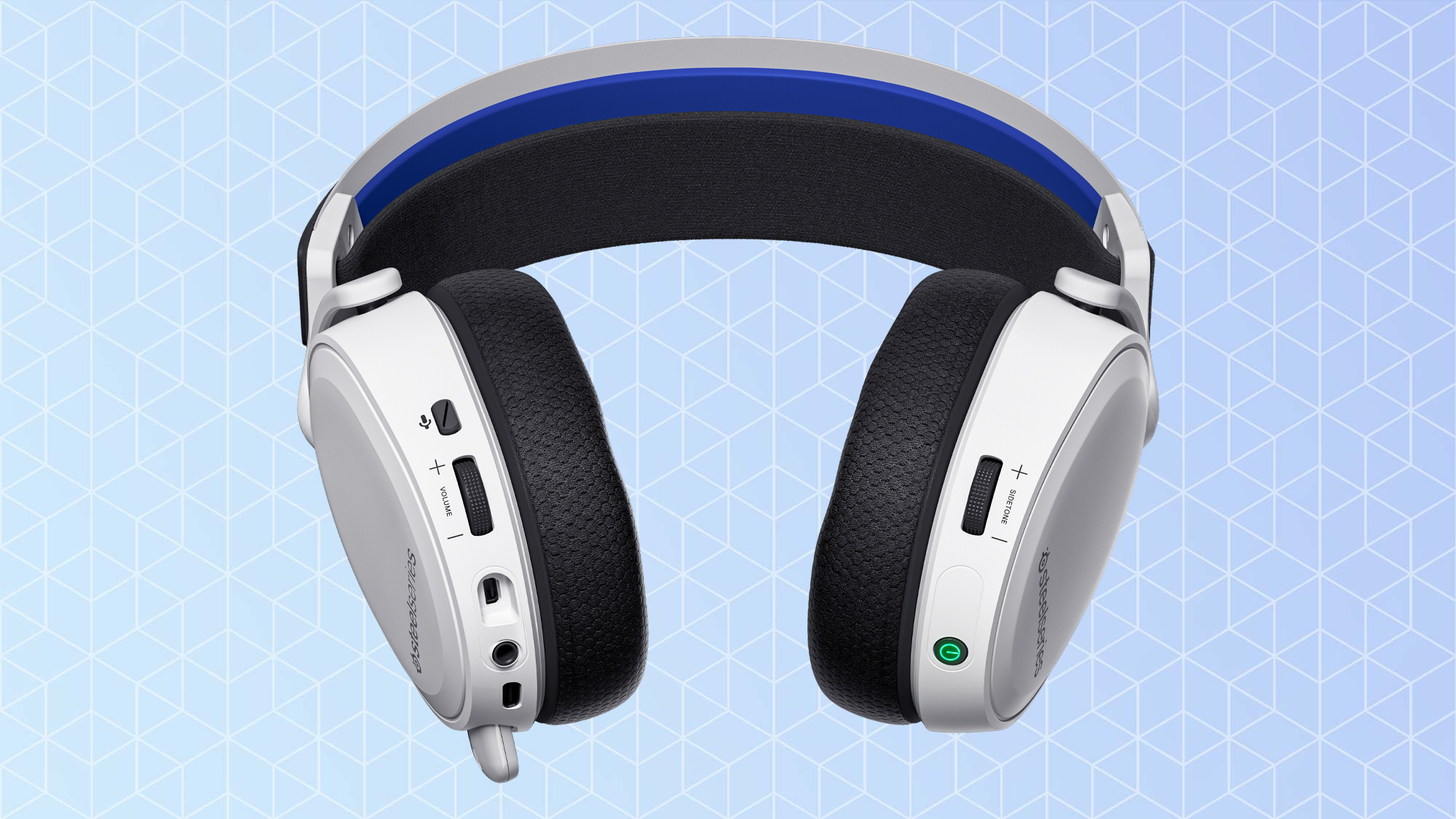
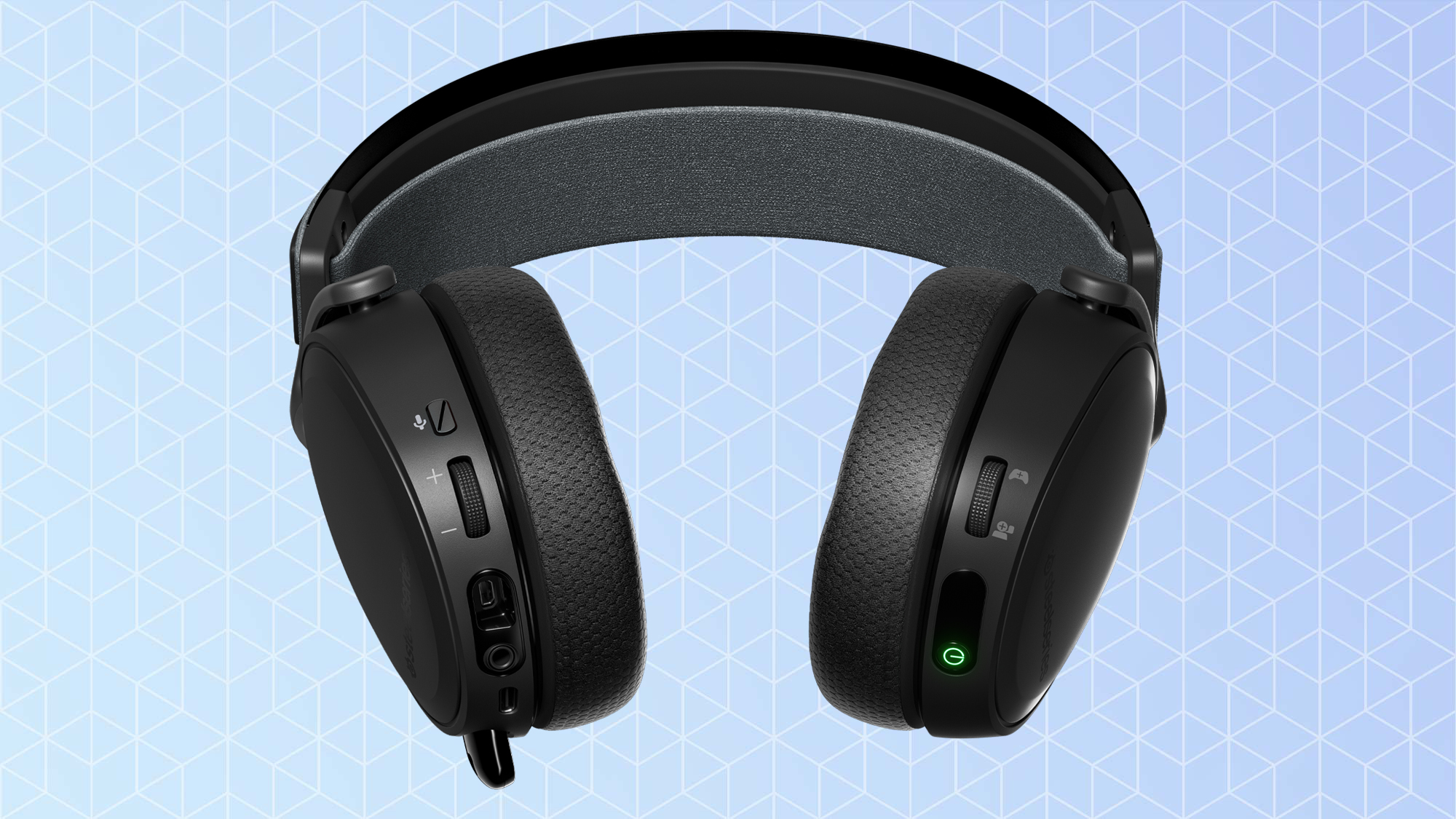
The Arctis 7+ has a black chassis and a ChatMix dial on the right earcup. The Arctis 7P+ has a white chassis and a mic sidetone dial on the right earcup. Both headsets support Tempest 3D audio on the PS5, as well as 7.1 virtual surround sound and full SteelSeries Engine software compatibility on the PC. For review purposes, the two devices are functionally identical.
SteelSeries Arctis 7+/7P+ review: Design
If you’ve worn an Arctis 7, Arctis 7P or Arctis 7X, then you’ve effectively worn a SteelSeries Arctis 7+/7P. This headset features a black or white plastic chassis with large foam-padded earcups and an elastic “ski goggles” headband. The design hasn’t changed much since 2016, but I’m also hard-pressed to think of anything that really needed changing.
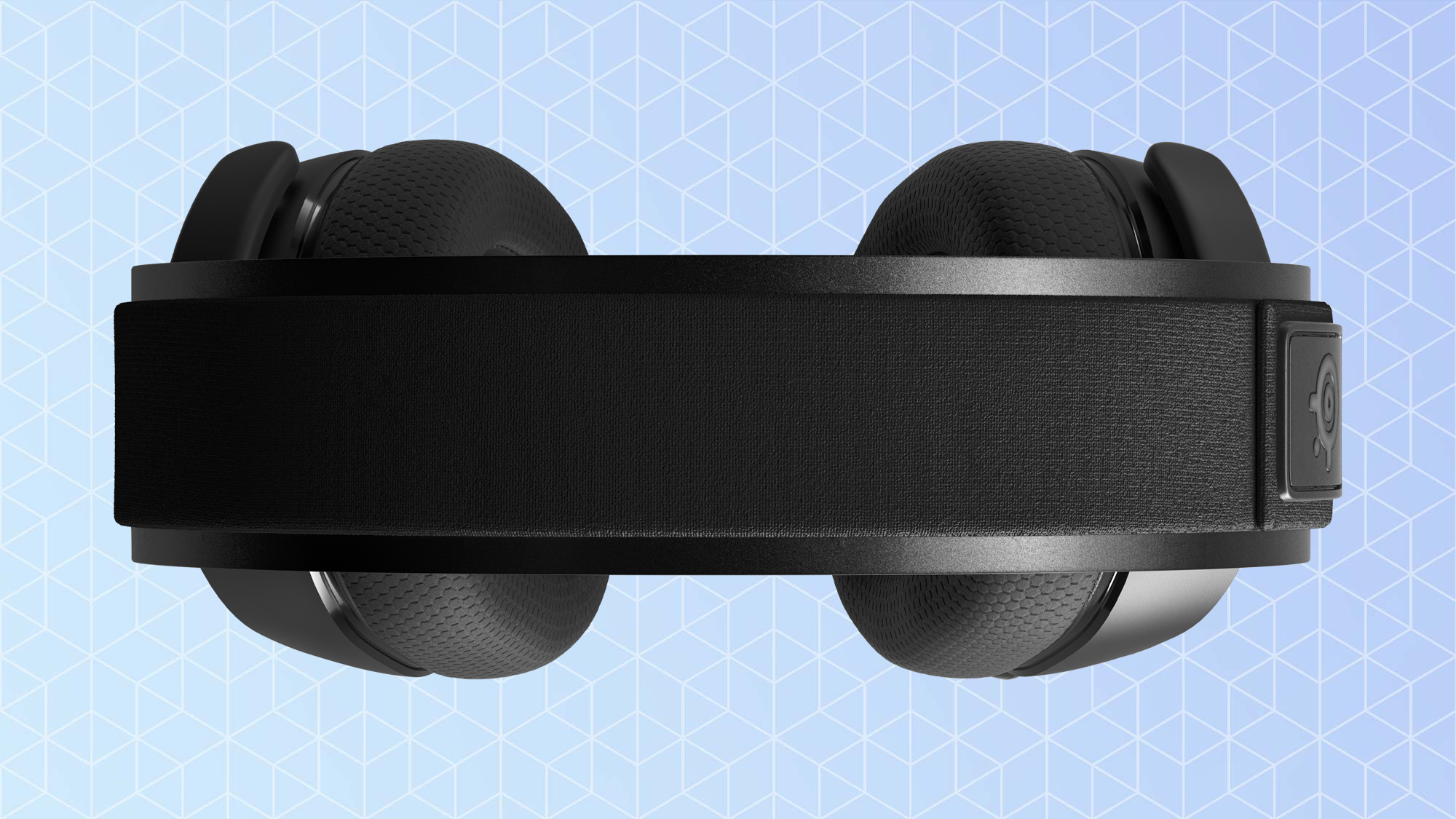
The left earcup is where most of the action happens, featuring a retractable mic, a 3.5 mm audio jack, a proprietary SteelSeries jack (also primarily for 3.5 mm audio), a volume dial and a mic mute button. The big upgrade here is the USB-C charging port, rather than the 7/7P’s micro-USB port. This offers faster charging with a more convenient cable; you can also get up to three hours of uptime with a 15-minute charge.
Get instant access to breaking news, the hottest reviews, great deals and helpful tips.
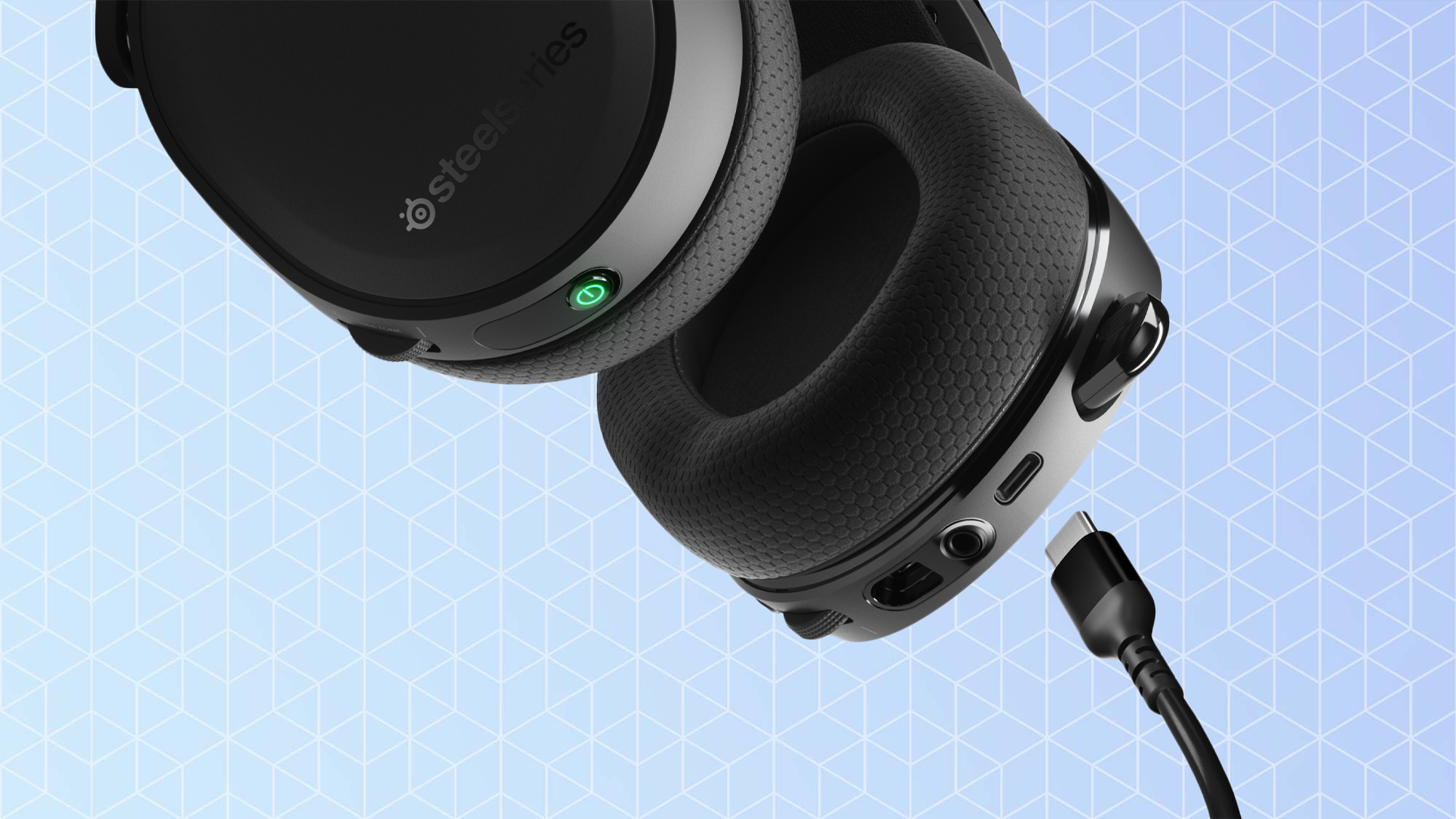
The right earcup is about the same as before, with a power button and an extra dial for either ChatMix, or mic sidetone, depending on your model.
SteelSeries Arctis 7+/7P+ review: Comfort
When it comes to comfort, the SteelSeries Arctis 7+/7P+ is still basically unparalleled. Rather than steel or plastic headbands with rigid notches, most SteelSeries Arctis headsets use an elastic headband, which SteelSeries calls a “ski goggles” design. This means that every time you put on the headset, it will automatically adjust to a perfect fit — and if you share the headset with housemates, it will do the same for them. Between the cushioned earcups and the automatically adjusting headband, I was able to wear the Arctis 7+/7P+ for hours on end comfortably.
SteelSeries Arctis 7+/7P+ review: Performance
The SteelSeries Arctis 7+/7P+ provides good sound for most games, and slightly subpar sound for most music. This is because from a design standpoint, it has the same drivers as previous Arctis 7 models. Like its predecessors, the Arctis 7+/7P+ isn’t quite “premium” from an audio quality perspective, but the soundscape is perfectly clear and fairly nuanced. Even so, a lot of competing headsets, such as the Corsair Virtuoso RGB Wireless XT, have started to dabble in 50 mm drivers, as opposed to the Arctis 7+/7P+’s 40 mm, and it makes a difference.
Since the Arctis 7+/7P+ boasts compatibility with a wide variety of platforms, I tested it on a broad spectrum of games. These include Age of Empires IV on the PC, Until Dawn on the PS4, Assassin’s Creed Valhalla on the PS5, Bayonetta on the Switch (both docked and undocked) and Tales of Crestoria on Android.
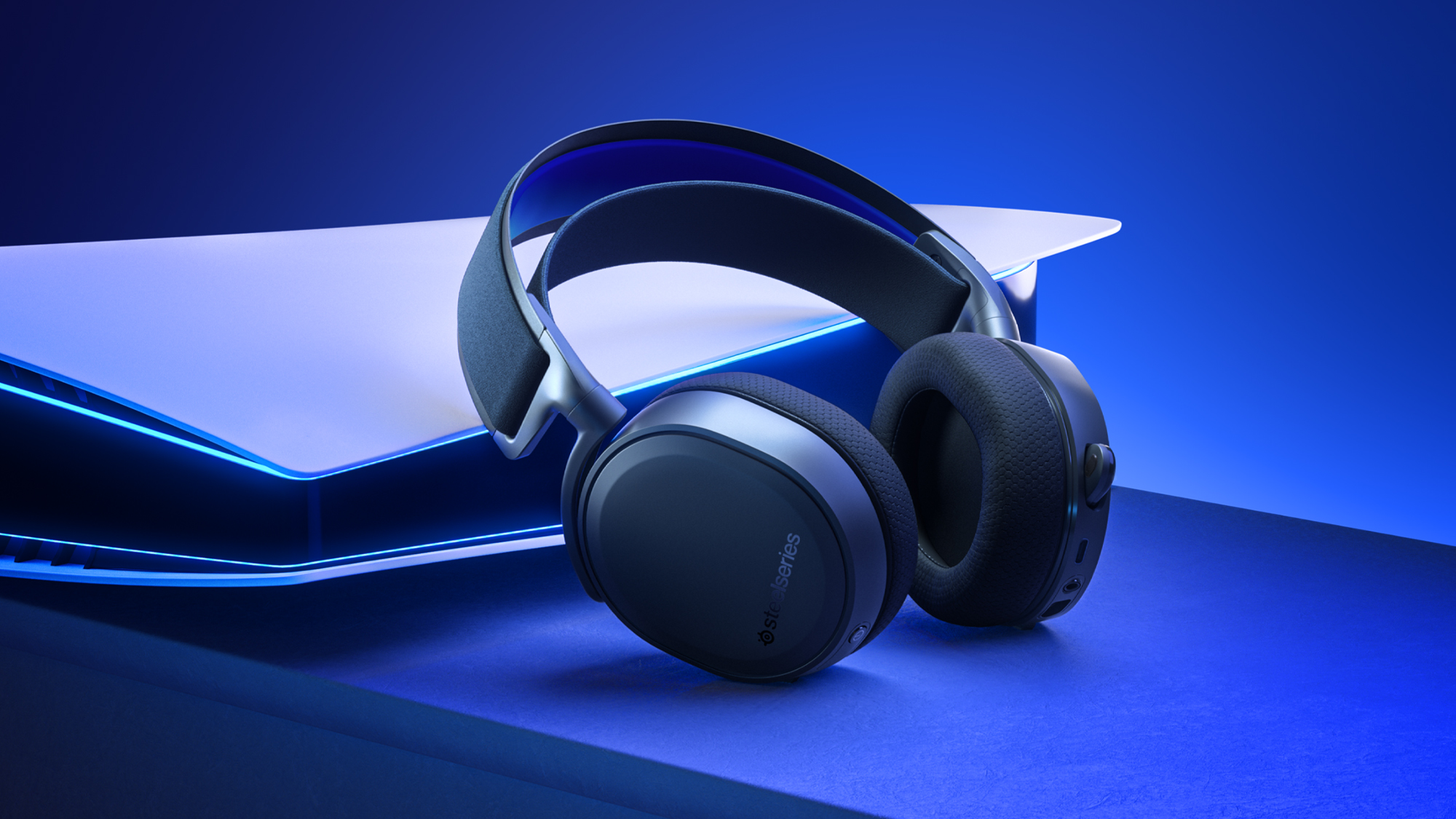
The headset acquitted itself well across all systems — except for some oddly echo-filled voices at certain points in Until Dawn. The highlight, though, was how the headset handled Assassin’s Creed Valhalla on the PS5. Thanks to its Tempest audio support, every character’s voice sounded rich and resonant, while the music and sound effects struck a perfect balance.
On the other hand, music has always been a slightly sore spot for the Arctis 7 series, and the 7+/7P+ is no exception. I listened to tracks from Flogging Molly, Old Crow Medicine Show, The Rolling Stones and G.F. Handel, and found the soundscape a little flat and muddled. It’s fine for everyday listening, but audiophiles will probably need a second, even more expensive set of headphones.
SteelSeries Arctis 7+/7P+ review: Features
Arguably the biggest selling point of the SteelSeries Arctis 7+/7P+ is that it works with a lot of different systems with minimal fuss. Thanks to a small USB-C dongle, the headset can connect wirelessly to PCs, PS5s, undocked Switches and Android devices; there’s also a USB-A adapter for PS4s, docked Switches and older PCs.
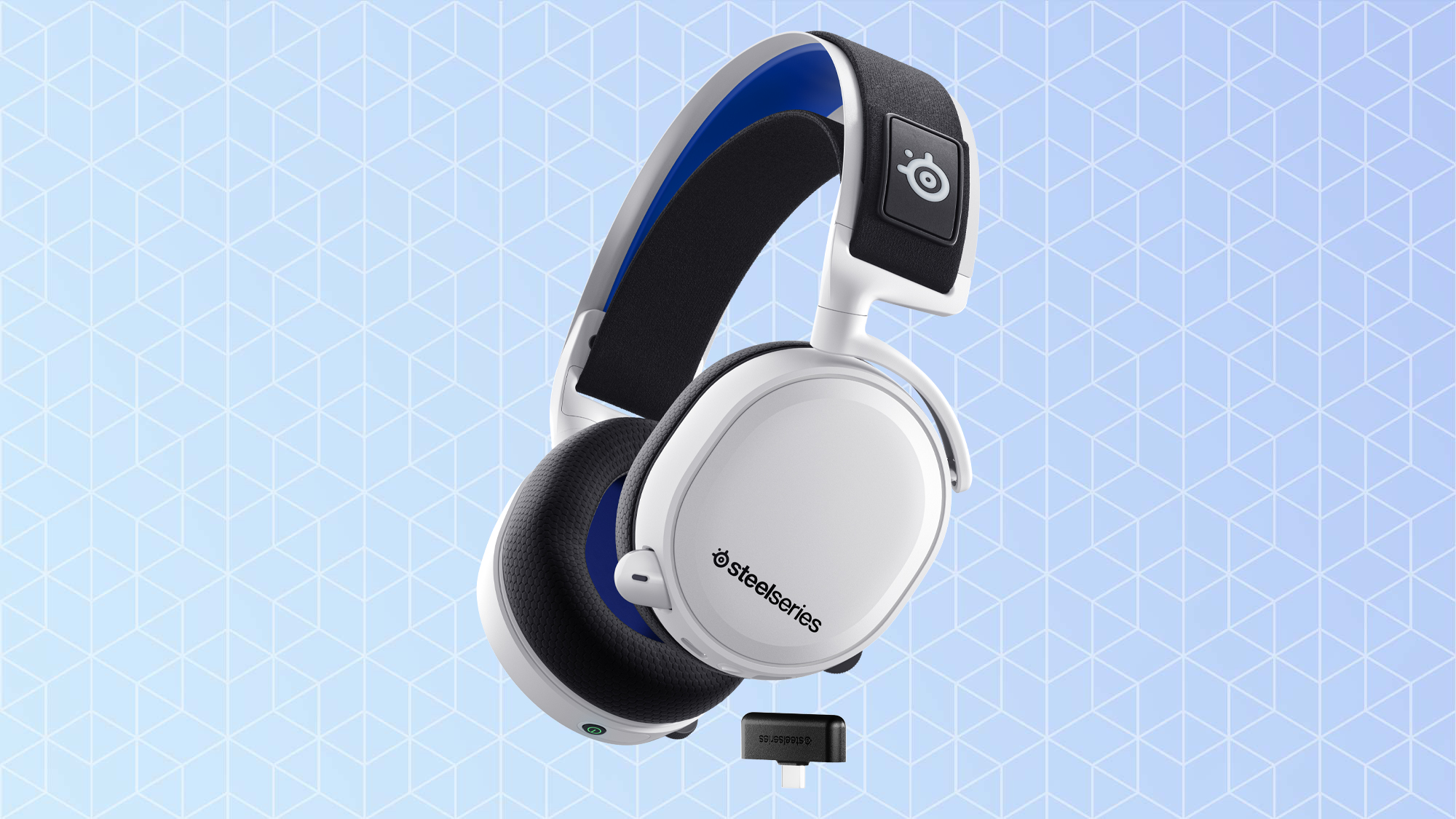
I have only two complaints about the dongle. The first is that the USB-A adapter is a long wire rather than a simple plug. This is arguably better for signal strength, but makes switching among systems a more cumbersome process. The second is that the dongle is still large enough to block adjacent USB ports, both on laptops and on the PS5.
There’s also the fact that there’s no Xbox variant this time around. The SteelSeries Arctis 7X is one of the only wireless headsets that works seamlessly with both PlayStation and Xbox consoles, and not having that option feels like a step back. If you own both PlayStation and Xbox gear, you may be better off with an Arctis 7X, even with its older charging cable and shorter battery life.
Speaking of battery life, though, SteelSeries touts improved battery life as one of the main selling points of the Arctis 7+/7P+. Whereas older models lasted for about 24 hours, the newer model can last for 30. It’s not a night-and-day difference, but six hours represents two to three solid gaming sessions, and fewer charging sessions is always a helpful perk.
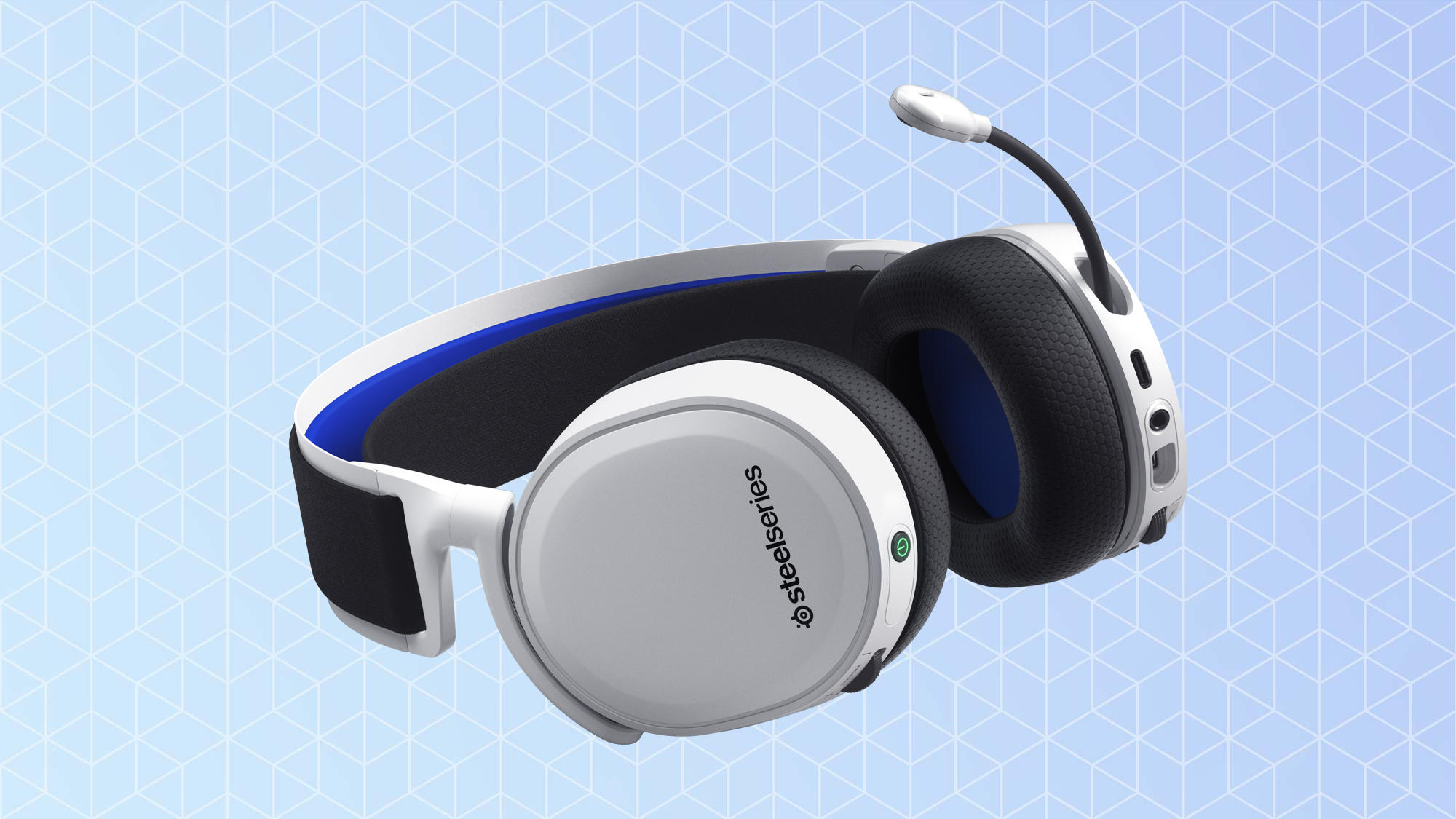
The Arctis 7+/7P+ runs on the SteelSeries Engine software, which has changed a lot over the years. Breaking down the pros and cons of the software is beyond the scope of this review, but you’ll be able to alter mic volume, tweak equalization options, set up profiles for individual games and so forth. It all works pretty well, although I was disappointed to find that even after five years, the software is still remarkably light on presets — and none of the presets is optimized for a specific game genre.
One new feature of the SteelSeries software is the Sonar menu, which lets you alter treble, bass and volume in greater detail than the standard software. Sonar is still in beta, and while I had some fun tweaking all the various options, I didn’t find many indispensable options for either game audio or music.
SteelSeries Arctis 7+/7P+ review: Verdict
The SteelSeries Arctis 7+/7P+ is a great headset — primarily because it’s resting on the laurels of the great headsets that preceded it. If you want a comfortable, versatile peripheral with solid gaming audio and generous battery life, you can’t go wrong with either the PC- or PS5-centric model. The extra $20 in the price tag is not a dealbreaker, considering that a good pair of gaming headphones can easily last three to five years.
On the other hand, the Arctis 7+/7P+ is still operating on a five-year-old template, and it’s starting to show. Competing headsets have integrated larger drivers and better Bluetooth functionality in the interim, and other SteelSeries models have successfully bridged the PlayStation/Xbox gap. If the Arctis 7 broke new ground in gaming headset design, then the 7+/7P+ feels like the finishing touches on the building.

Marshall Honorof was a senior editor for Tom's Guide, overseeing the site's coverage of gaming hardware and software. He comes from a science writing background, having studied paleomammalogy, biological anthropology, and the history of science and technology. After hours, you can find him practicing taekwondo or doing deep dives on classic sci-fi.
